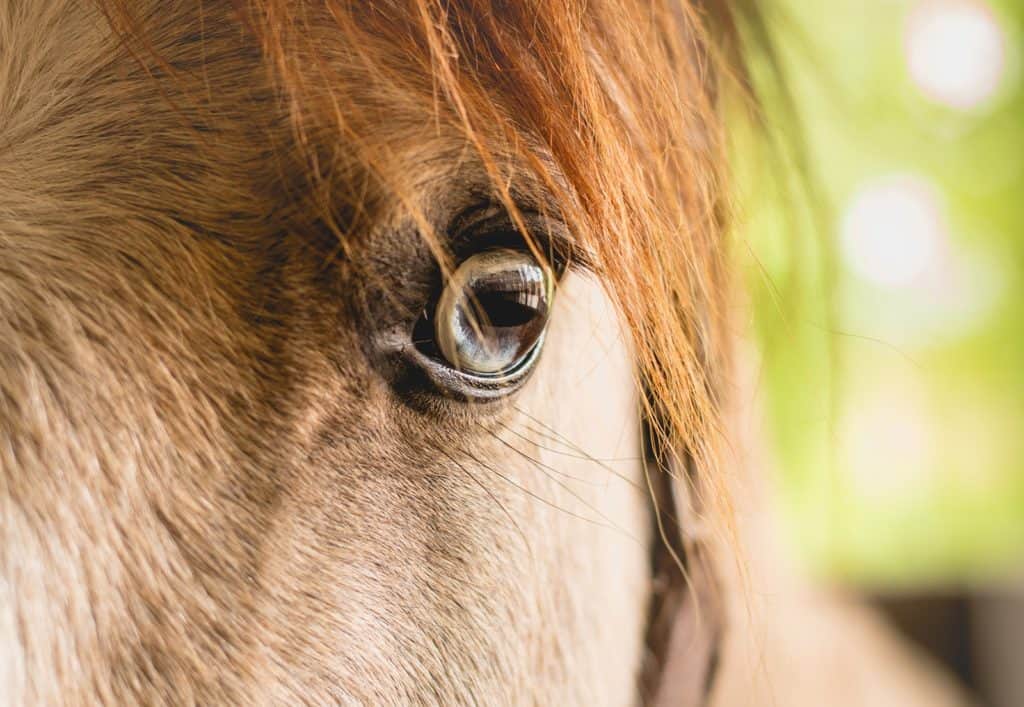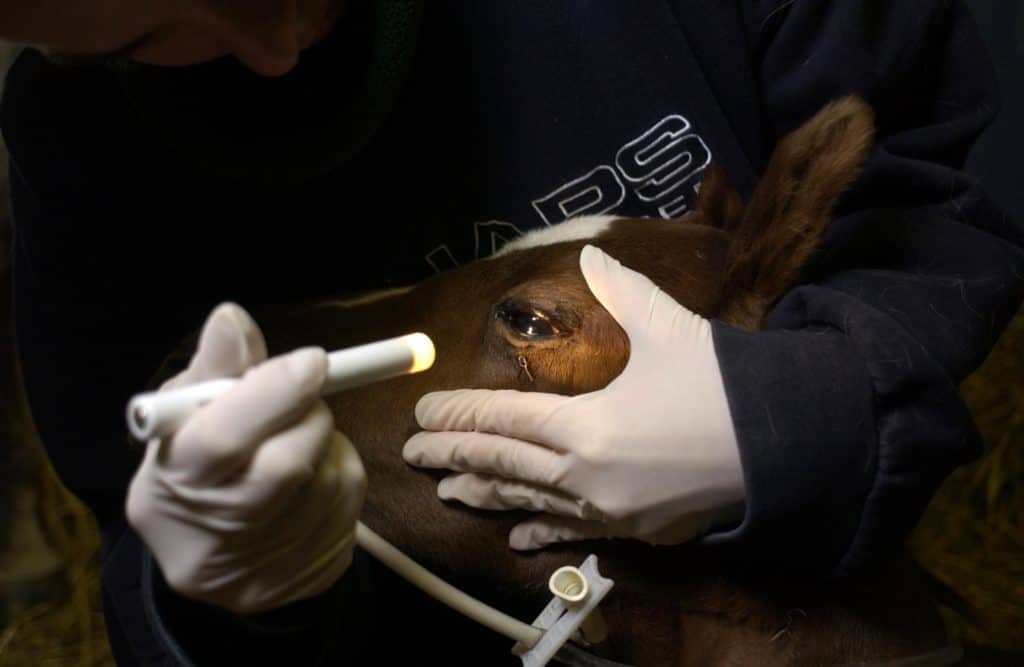
Corneal Disease in the Horse
Corneal diseases can range from minor annoyances to serious problems resulting in blindness in horses.

Corneal diseases can range from minor annoyances to serious problems resulting in blindness in horses.

Fungi live all around us, and they are capable of producing severe eye infections. Here’s what you need to know.

Quick attention to these infectious eye ulcers can save your horse’s sight.

Even small injuries to the horse’s eyelids are important and require veterinary attention. Here’s what to watch for.

Learn about some of the most common eye problems found in foals and how they can be treated.
Understanding how the horse sees the world can give horse owners an appreciation of their animals’ behavior. In addition to their reduced color perception (which makes certain color cues relatively useless), horses also have slightly poorer visual

Your veterinarian has an array of instruments and techniques for examining your horse’s eyes.
Surgery topics at the 2001 AAEP Convention helped the practitioner learn new techniques
Is there any food, treat, or climate that causes moon blindness flare-ups?
I am looking for information on glaucoma in foals. Any information will be helpful.
Because it is a prey animal, the horse has both monocular and binocular vision. Its monocular vision is the result of having one eye located on each side of the skull instead of both eyes in the front. This means that the horse has far greater periph
Fall and winter sometimes bring unexplained eye problems in horses and cattle, with irritation and inflammation, or corneal ulcers. Some of the horses examined at these college clinics over the past several years had microscopic barbed slivers”all and
Could a horse with two blue eyes have vision problems?
A corneal ulcer (ulcerative keratitis) is the most serious eye disease that veterinarians treat. Defined as a lesion in which the outer layer and some of the middle layer of the cornea have been lost, even simple ulcers can quickly progress to
A recent study published in the Journal of the American Veterinary Medical Association provides evidence that persistent ocular (eye) infection with the bacterium Leptospira interrogans is much more common in horses with recurrent
I am thinking of buying a mare that has cataracts in both eyes. What problems should I watch for?
Stay on top of the most recent Horse Health news with
"*" indicates required fields